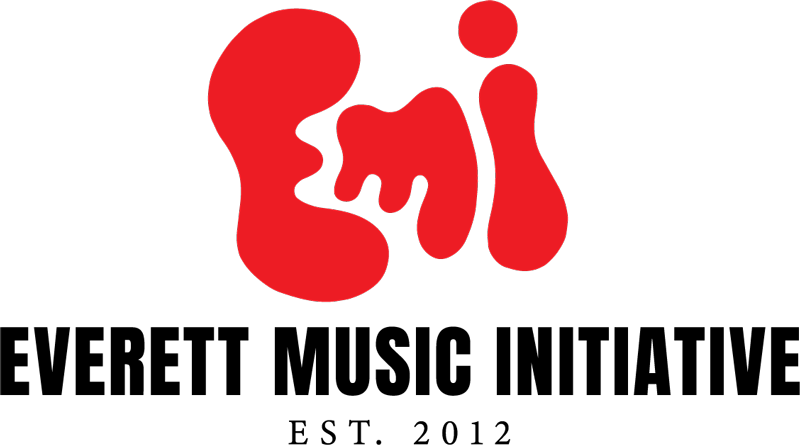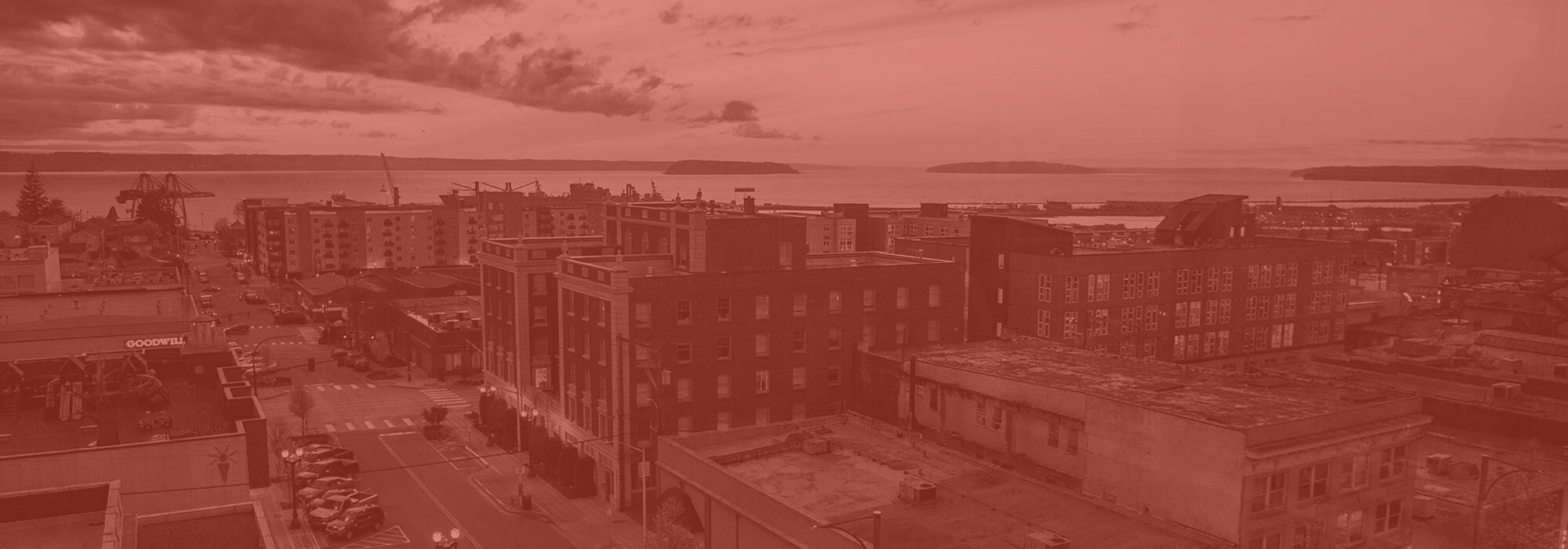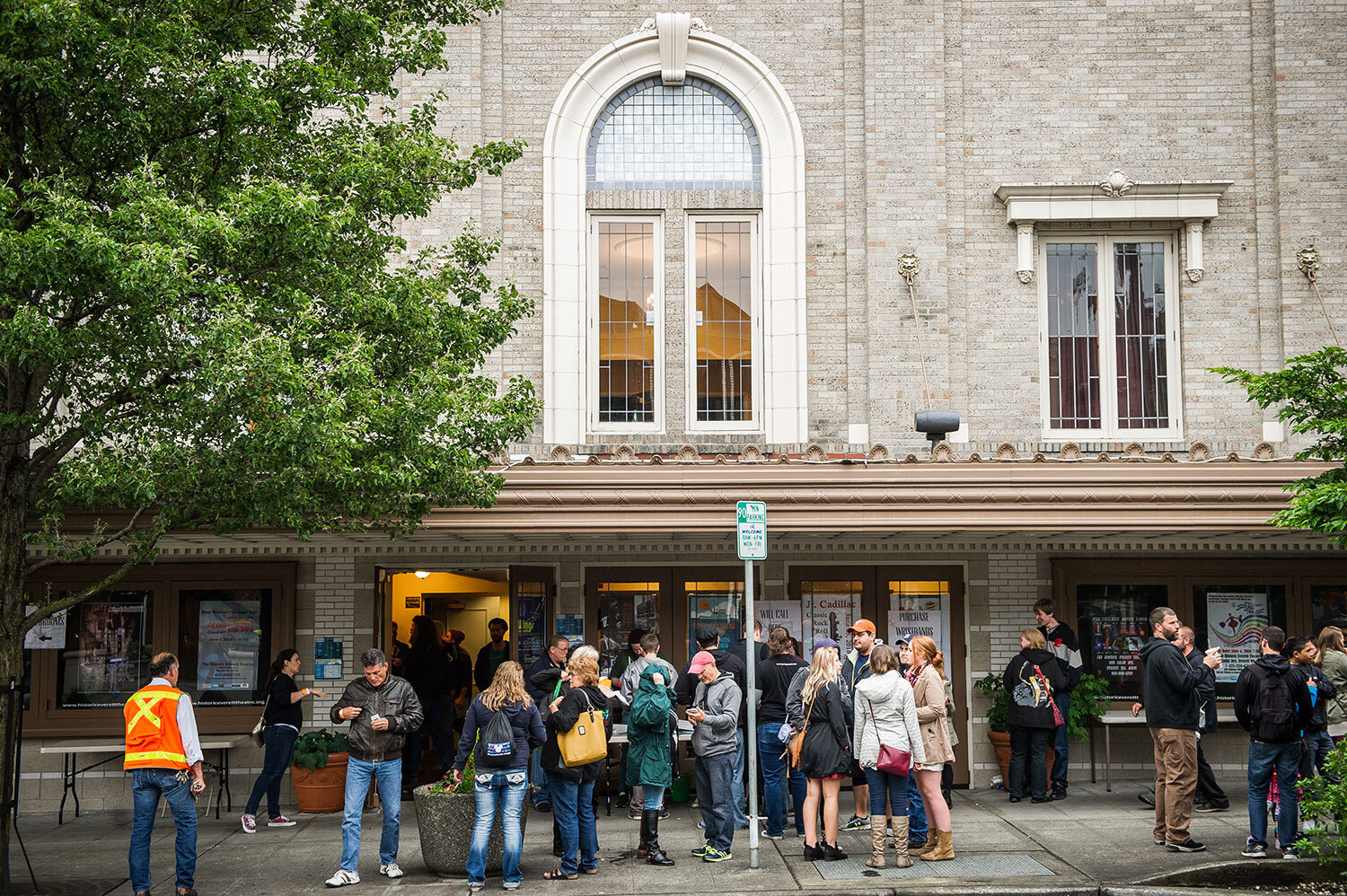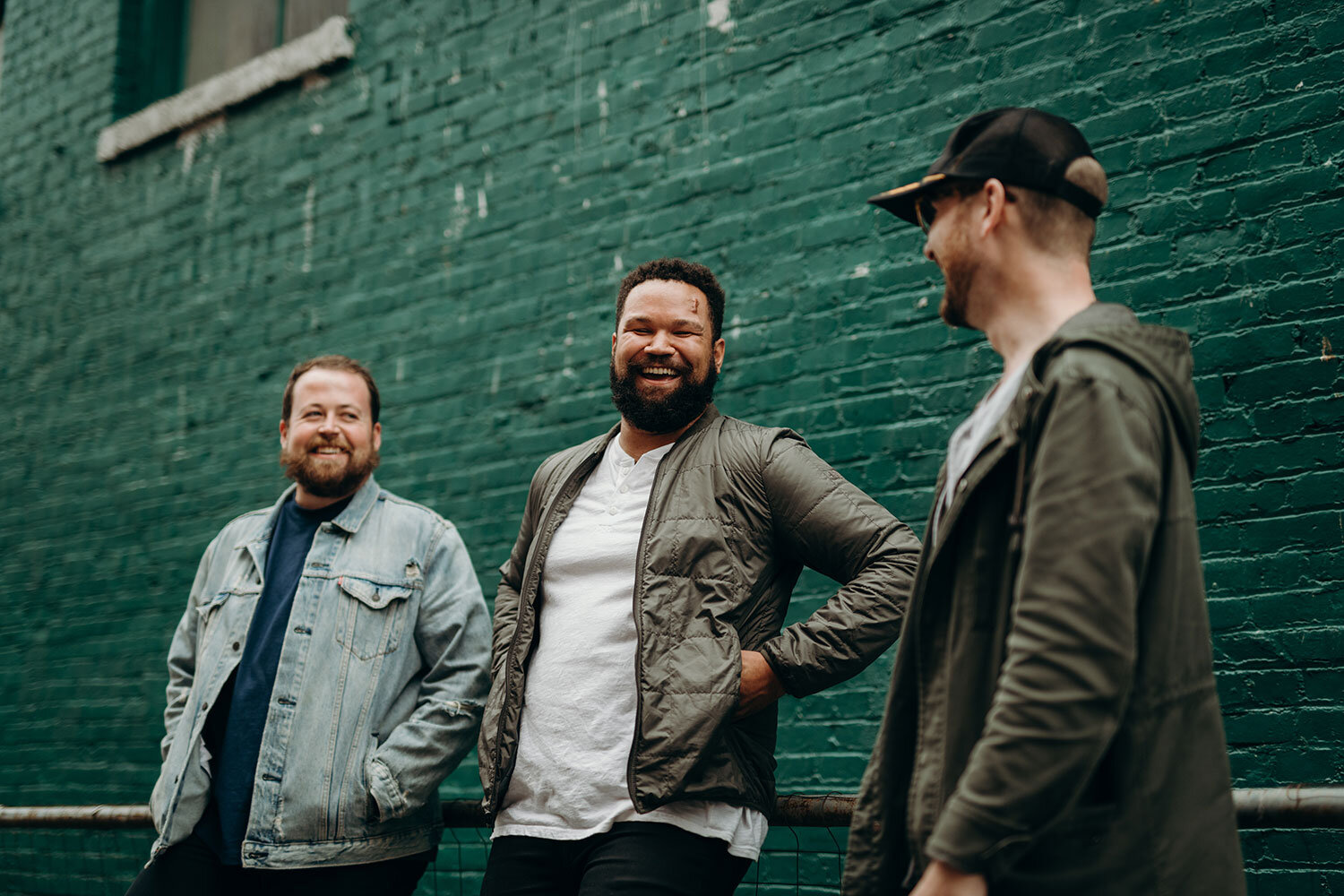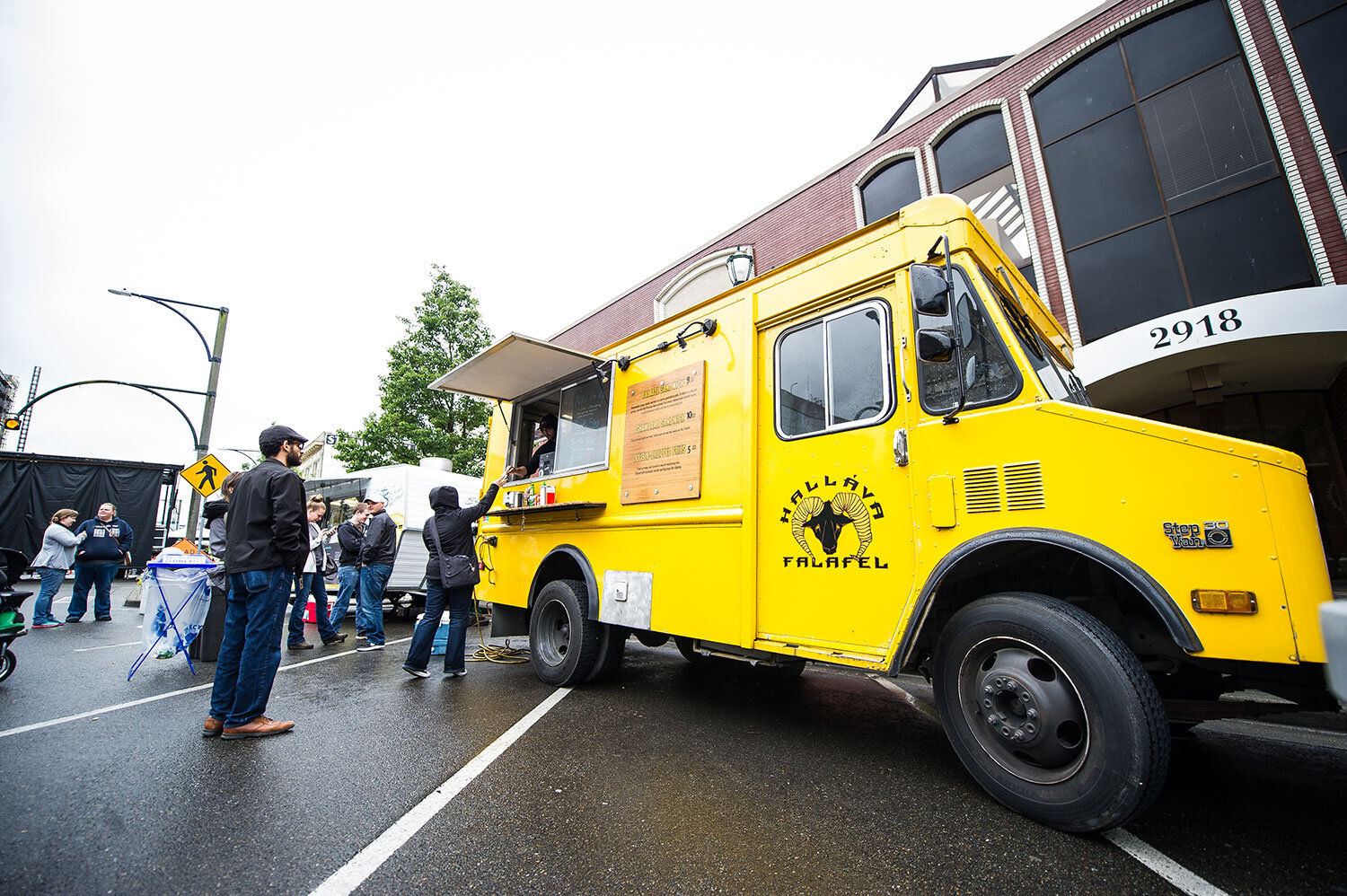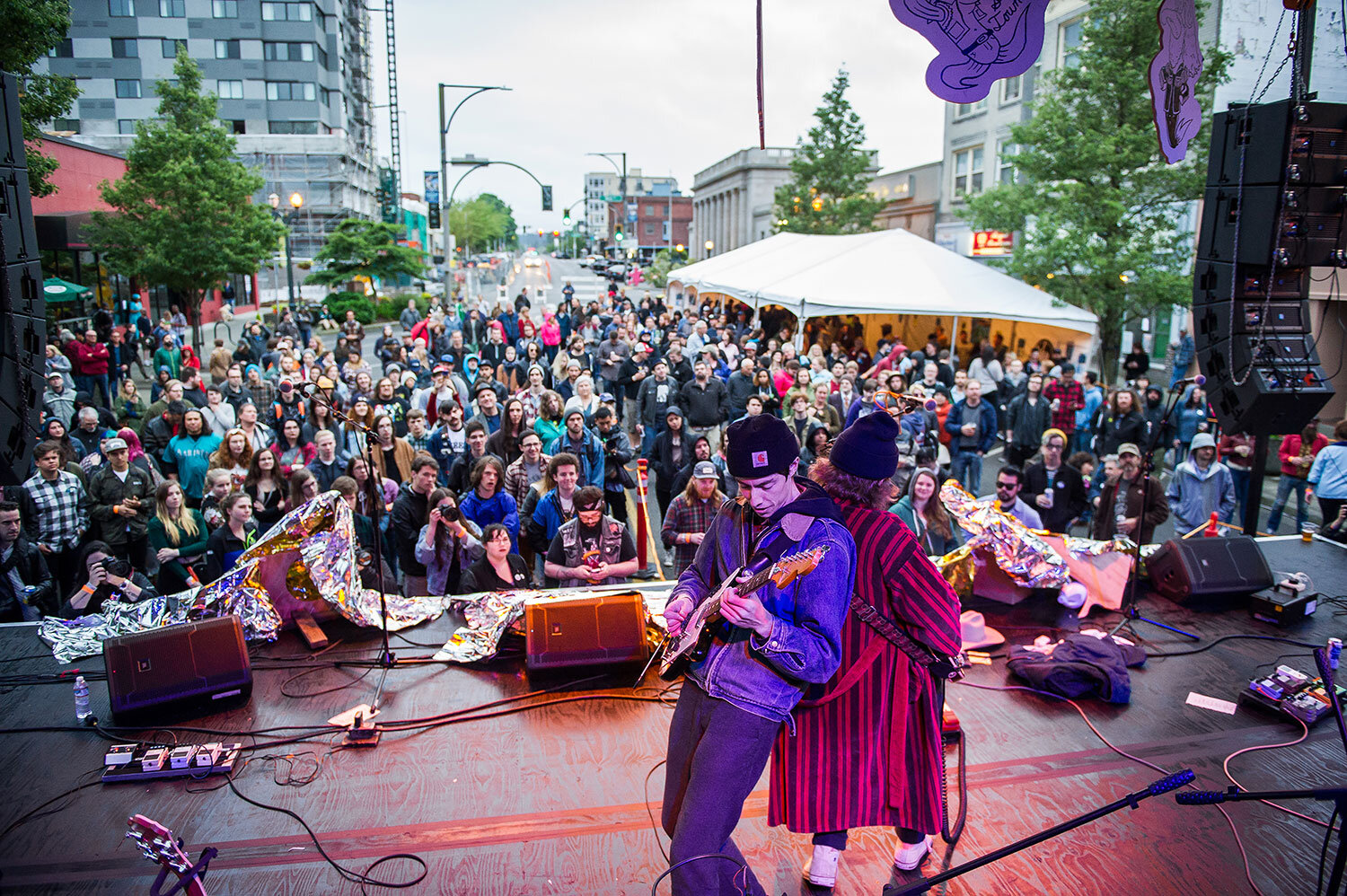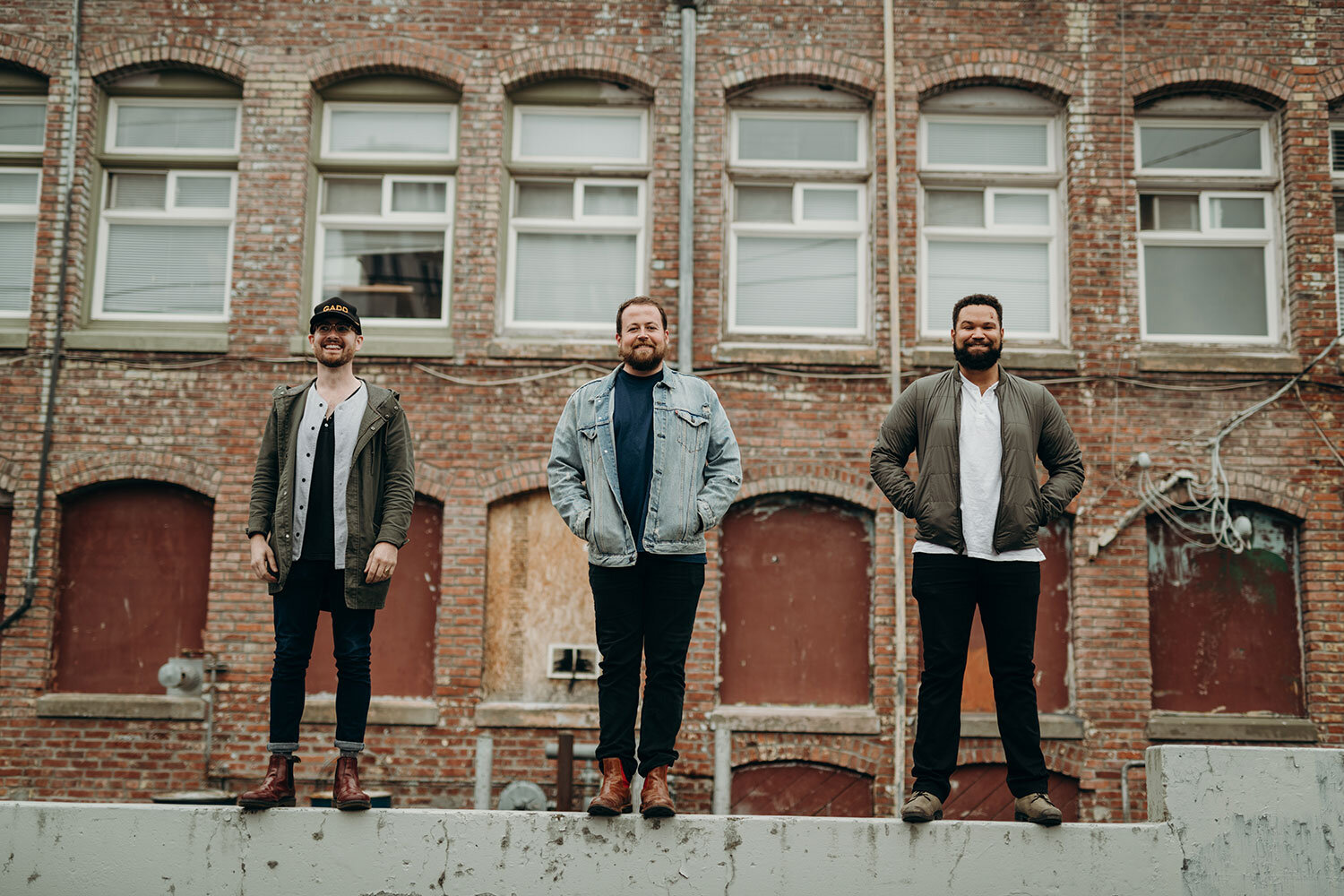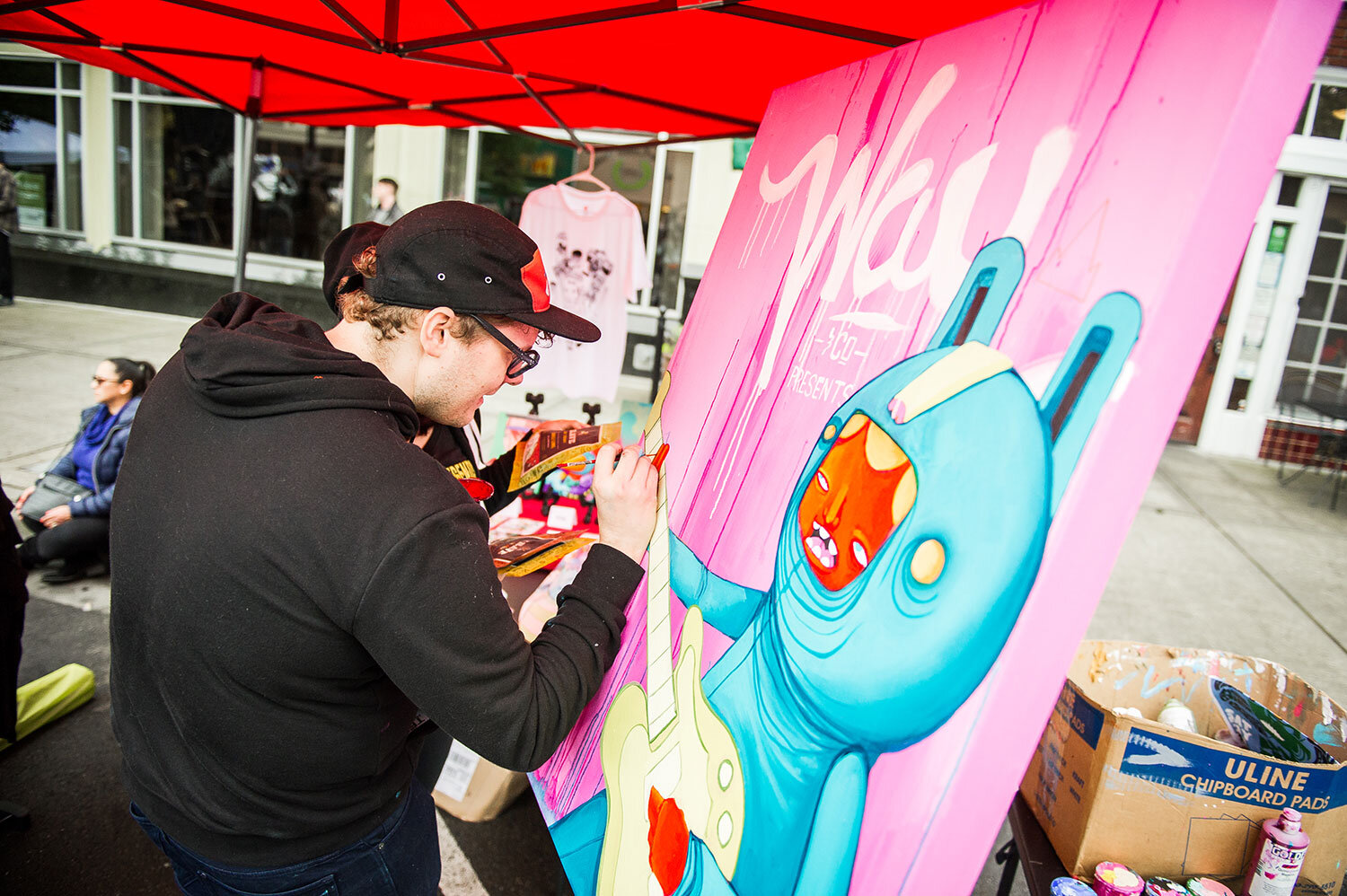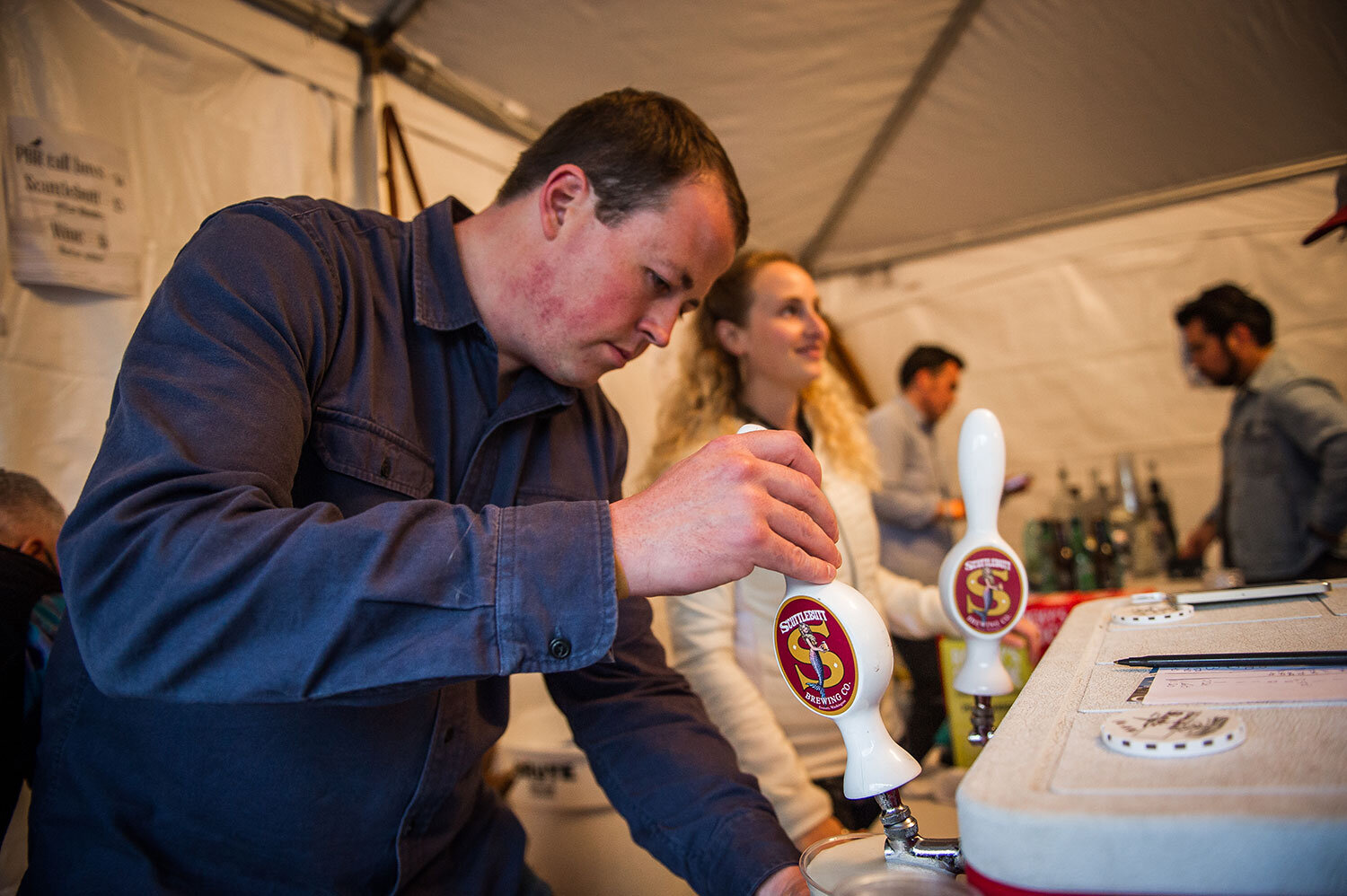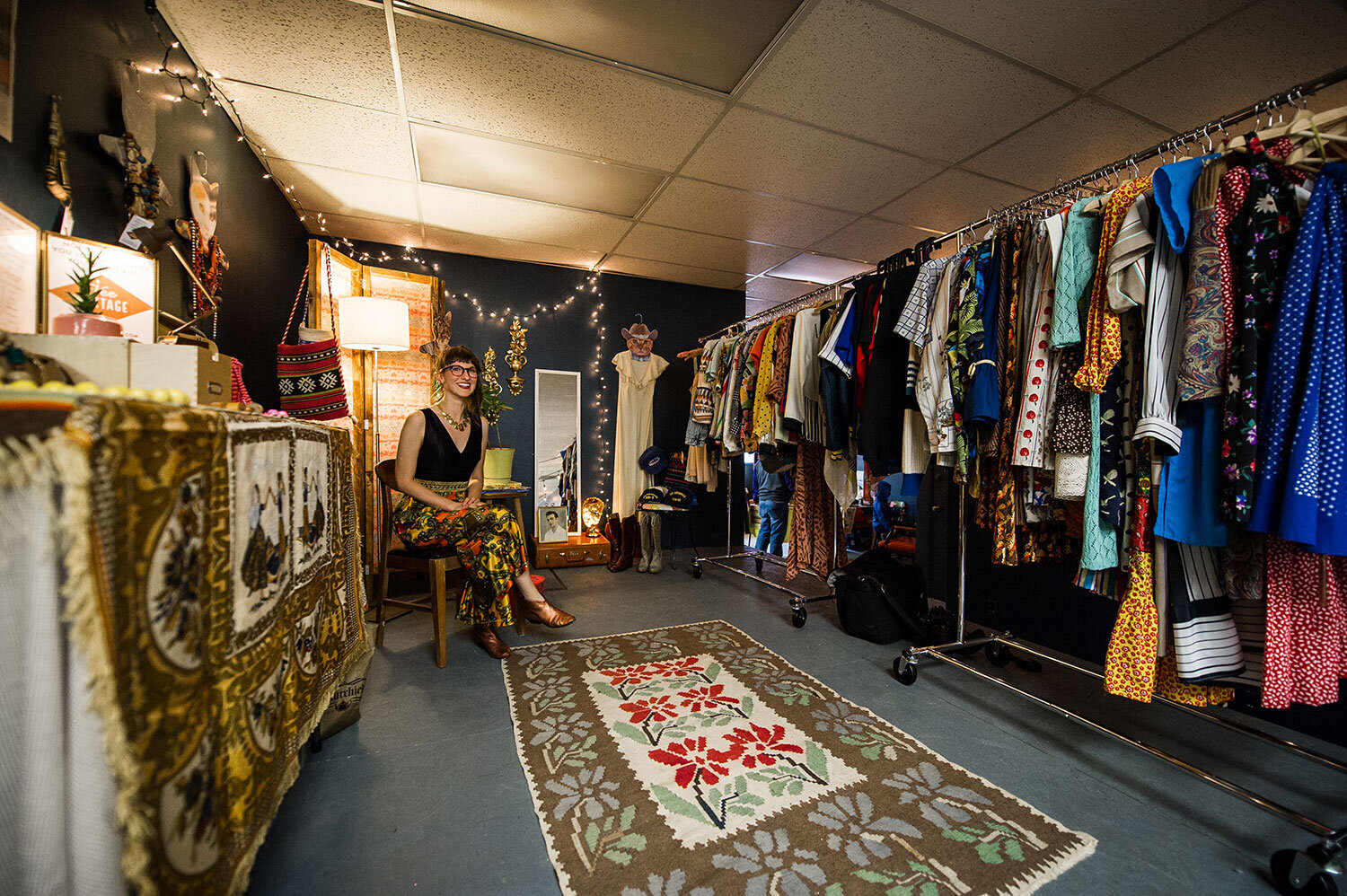the long and winding road
When Ryan Crowther first took a job in the city of Everett and began hanging out downtown, he noticed two things: Everett was surprisingly quiet when the sun went down, and there seemed to be little knowledge of why. The year was 2012 and, like most cities across the US, Everett was still working to recover from The Great Recession. The Schack Art Center and the art lofts had recently been built, new apartment buildings were popping up and there was a small, yet mighty young energy happening downtown. With that, there seemed to be a voiceless nod from the young and young-at-heart that there was not enough noise downtown and something needed to be done about it.
It was around then that Crowther and a rotating cast of characters including Steven Graham (music writer/1077 THE END DJ) sketched out plans to begin hosting shows downtown. The model was simple. Convince bigger names from Seattle to come play to a new crowd with a small guarantee, ask up-and-coming local bands to open the show, promote the hell out of it and a good time would be ensued. And it worked. After a successful trial at the Anchor Pub on May 12th, 2012, a name to go on posters was created to present each show: the Everett Music Initiative.
Monthly shows at the Anchor Pub went from 50 to 80 to over a hundred people within six months. It was clear after each show that a void was being filled. Bands were walking away with money and people of all ages were gushing that there was a small scene bubbling up in the Salish town. Local artists were getting a room full of people and a chance to play/connect with emerging artists playing bigger festivals and rooms that Everett artists only dreamed of playing. With a crash of a cymbal, Everett Music Initiative (EMI) was ready to celebrate its first year with a show at the Historic Everett Theater. After selling nearly 400 tickets and feeling the energy that night had to offer, it was clear EMI was building something special in Everett.
Now, the Everett Music Initiative knew that there were already shows happening in town. Tony Verhey (of Tony V’s Garage) would tell you; he’s been bringing bands to Hewitt Avenue since the 80’s. Café Zippy had created an all-ages footprint, offering open mics, poetry slams and acoustic showcases. House shows were happening at the Firehouse among other places. There were some things happening. It felt at the time like you had to walk past the doors and hear it to know about it. This is what led EMI to take a proactive effort in coordinating the current scene, promoting the bigger picture of what was musically happening in Everett and making sure that touring artists passing by on I-5 to Vancouver or Seattle knew that there was a stop in Everett for them. A stop that included new faces and an energized music community that would make sure a line ensued at their merch table to purchase CD’s and a band tee to get them gas money for their next day.
Beyond supporting Everett’s burgeoning cultural arts movement and inviting emerging acts to town, EMI knew that one weekend a year they wanted the Pacific Northwest spotlight pointed on Everett. Invite over 50 of the biggest acts from the region, showcase multiple venues across the city they were so proud of and sell tickets for pennies on the Seattle music festival dollar; why wouldn’t people come? It surely wasn’t that easy. But that was the premise and the birth of Fisherman’s Village Music Festival, EMI’s flagship festival in May of 2014, that brought over 2,500 people to Everett over three days.
It was humble beginnings and what sounds like fast growth now actually was rather slow and steady at the time for them. “More than anything, we wanted to put together a festival in Everett. When we created EMI we knew there was no way we could start with a festival. So, we spent two years throwing shows, building a market and a little bit of credibility for Everett. At the end of 2013, we knew it was time and went for it,” says Crowther.
There was a palpable feeling that festival goers could feel that weekend; that this festival was a citywide event and would likely be an annual highlight for Everett, putting the city on the map for major media outlets, concert goers and tourists alike. And in return, Everett has served as the perfect home for it to flourish and expand into the festival it is today which every year draws national touring acts and audiences from up and down the West Coast and British Columbia.
The first festival had five stages, including Everett’s newest venue run by Crowther and Graham. 2820 Oakes Avenue is now occupied by Kirtley-Cole Construction, but any thirty-something dude with a beanie and a mustache walking downtown will likely tell you that it was once The Cannery. Not only was The Cannery open just in time for the first Fisherman’s Village Music Fest, but hosted nearly 200 artists before the entire building was purchased in 2015, which led EMI back to producing events in more venues around town.
As the city’s venues and scene change and evolve, the initiative continues to adapt, while also sticking to its mission of helping artists develop. By hosting showcases at Treefort Music Festival in Boise, Off Beat Music Fest in Reno, Upstream Music Festival in Seattle, the team has introduced local artists to festival crowds and other music markets they likely would not have access to. EMI has also offered significant resources to local artists to help connect them with other artists, producers, talent buyers, as well as CD and vinyl manufacturers. This has led to some special success stories out of the greater Everett area including Fauna Shade, FRETLAND and more.
In addition to more provincial names associated with the events, they’ve also had no struggle of getting big names into town. Nearly 20 artists they have hosted for events have played late night TV performances and many of those have been nominated for a Grammy. Between Fisherman’s Village Music Festival and newer events such as Rock The Boat, they’ve hosted names such as Clint Black, Allen Stone, Drive-By Truckers, Clay Walker, Mudhoney, Fruit Bats, Shovels & Rope, Wolf Parade, Joseph, Courtney Marie Andrews, Damien Jurado and countless others.
Now, after 500-plus events, eleven music festivals, attention from KEXP, Pitchfork, Paste Magazine, The Seattle Times, Seattle Weekly and a million precious memories, the story thus far has been remarkable. And still, even with regional notoriety and national press, Everett has remained at the center of it.
Crowther believes in a grassroots approach, and his philosophy remains simple. “We knew [from the beginning] that if bands from outside Everett could come and play to a room full of people in a downtown, felt taken care of and had a good experience and walked away with some money, they’d want to come back,” he says.
Most recently, the initiative took over operations of Music at the Marina. In 2021, EMI received word that the city would no longer be producing Music at the Marina, a beloved waterfront music series produced by the city since the early 2000’s. Since EMI had been involved in the beer garden operations and had a vision for growing the event, EMI took over production of the event. In 2021, the team decided to make some changes that allowed for future growth — a larger stage and PA system, and moving the event just north to the Port Gardner Landing offering more space for people, food trucks, vendors and sponsors. Fast forward to 2024, crowds as big as 5,000 came to enjoy the live music, food trucks and beer garden for the eight week music series.
In 2024, Everett Music Initiative consolidated its operations with the Snohomish County Music Project, becoming a full-fledged 501c3 non-profit. 2025 will be the organization’s first full year as a bona fide 501c3 and has plans for new events and new partnerships to offer more to the community as a whole.
Crowther cannot help but recall walking through Downtown Everett when he first landed in Everett in 2008, and the déjà vu he gets of seeing more “For Lease” signs in windows and empty sidewalks on the weekends. “I’ve been hearing that ‘Everett is this close’ to becoming something since I got here,” he said. “EMI wants to meet Everett where it’s at and celebrate what’s here today. And that’s what we’re going to do.”
